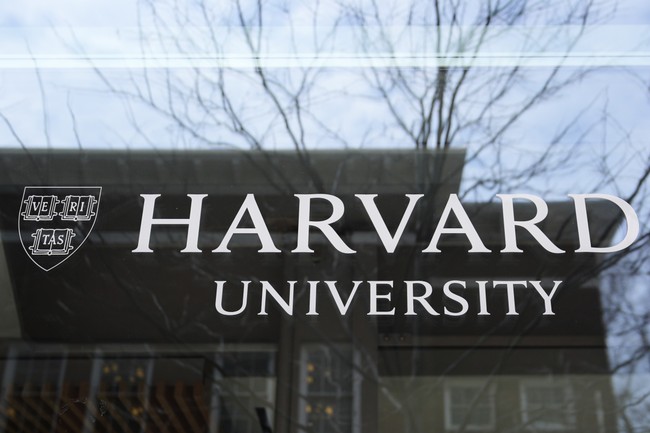
Is this yet another sign that Harvard is moving closer to a deal with the Trump administration? Most of the action detailed in this NBC News exclusive report goes back months prior to Trump’s reelection, but the president may have played a role in sealing its fate.
The Religion an Public Life initiative was announced back in 2020 as the first new degree program at Harvard Divinity School in 50 years. By this year it was being dismantled, an outcome that fans of the program saw as cowardice.
Since January, all three of the program’s leaders and most of its staff have left or not had their contracts renewed amid internal and external allegations of antisemitism against the program. It will continue to operate under new leadership this fall, but with vast changes.
Former faculty members of the program, speaking publicly for the first time, shed light on how the program fell apart — and what it could portend for the future of free speech on campuses nationwide.
“Nobody came to our defense,” said Hussein Rashid, the program’s former assistant dean, who resigned from his post in January and left at the end of June. “Our students were fantastic — our administrators were cowards.”
That’s one perspective but critics said the program had become a hotbed of anti-Semitism.
Critics of the program, including some Jewish students and organizations, are glad to see it overhauled. They say it invited one-sided or antisemitic speakers to give book talks and webinars and encouraged students to reject Zionism. Harvard’s April report on antisemitism singled out the program and said it was biased against Israel.
“The programming, the teaching, the literature and events are presenting one view,” said Rabbi Hirschy Zarchi, president of Chabad House and a chaplain at Harvard. “And it’s not just a view — it’s done in an activist manner.”
The program first caught attention when its leaders issued a statement about Hamas’ 10/7 surprise attack on Israel
It started in October 2023, when, in the aftermath of the Hamas attacks, the program’s leaders issued a statement calling on people to consider the “complexity” of the Israeli-Palestinian conflict.
“When these ‘decades of oppression’ are left out of the story about Hamas’ horrendous attack on Israeli civilians,” they wrote, “a narrative about an ‘innocent’ state of Israel’s right to ‘defend’ itself against supposedly ‘unprovoked’ aggression is legitimized.”
This was not the Harvard statement that made national news at the time. There was a separate statement published by the Harvard Undergraduate Palestine Solidarity Committee which said Israel was “entirely responsible” for the 10/7 attack by Hamas. They were joined by over 30 student groups who co-signed that statement. Then-president of Harvard Claudine Gay wrote a statement distancing the school from that statement. It was big news at the time.
The statement from the Religion and Public Life program was only signed by the six leaders of the program. Nevertheless, Harvard’s Divinity School quickly distanced itself from their statement.
Harvard Divinity School Interim Dean David F. Holland distanced the institution from a statement on the ongoing war in Israel and Gaza issued by leaders of the HDS Religion and Public Life program…
In his Thursday email, Holland wrote that the six individuals “speak solely for themselves,” adding that “they do not speak for their program, for HDS, or for its wider community.”
“To condemn acts of terror is not to ignore the history, and to critique the context is not to condone the terror,” Holland added. “Swift summaries often fail to do justice to these complex realities—they can inflame rather than illuminate—and are therefore unproductive in this moment.”
Despite this attempt to keep it at arm’s length, the statement festered and eventually was cited in a lawsuit brought by a Jewish student at Harvard.
Over the following year, as pro-Palestinian demonstrations swept campuses, including Harvard, criticism of the program grew. The statement and the program’s events were cited in a lawsuit by former divinity school student Shabbos Kestenbaum and a recently formed nonprofit organization called Students Against Antisemitism Inc. as examples of ways that antisemitism allegedly permeated Harvard.
Harvard was unable to get the case dismissed and wound up settling with Kestenbaum in May.
Again, the article points out the pushback to the RPL initiative goes back long before Trump was reelected, but his pressure on Harvard may have been the last straw. When the Trump administration announced an investigation into anti-Semitism at Harvard in March the school responded two weeks later with an announcement that RPL was being overhauled. It was by that point some low-hanging fruit that could be pointed to in an effort to show Harvard was serious about dealing with anti-Semitism on campus.





![Steven Knight [pictured in February] is set to write the latest James Bond movie, Amazon MGM Studios have confirmed](https://www.americanpolibeat.com/wp-content/uploads/2025/08/Major-James-Bond-update-as-creator-of-huge-BBC-series-350x250.jpg)






